Brain Center Research Day 2021
This year, the annual UMC Utrecht Brain Center Research Day will be on Friday November 5, and it is promising to be a day with lots of fascinating presentations and great speakers! The main theme of this years’ event is ‘Science Communication’ and there will be three subthemes:
1) Science communication within the UMC Utrecht Brain Center
Researchers of the UMC Utrecht Brain Center present their latest research findings on Regeneration and Rehabilitation, Stress-related disorders, Prediction models in disease and treatment and Neuro-oncology.
2) Science communication with patients
With an exciting keynote lecture from Jan-Willem Gorter about his vision on patient communication and participation.
3) Science communication to society and other researcher
We will discuss what is important when communicating science to society and among researchers.
... and beside the keynote speakers we also have some inspiring PhD students Blitz presentations and much much more! We are looking forward to see you on November 5th, 2021!
----------------
Details
The Research Day of 2021 will be hosted at the Bartholomeus Gasthuis in Utrecht. All the sessions will be broadcasted through MS Teams, therefore participants have the option to either attend physically or digitally. Please indicate in the registration form how you would like to attend this meeting.
Please sign up before 21 October when physical attendance is preferred. The deadline to sign up for the Blitz-presentation is also 21 October.
---------------
Program
Click here to enlarge the program (pdf).
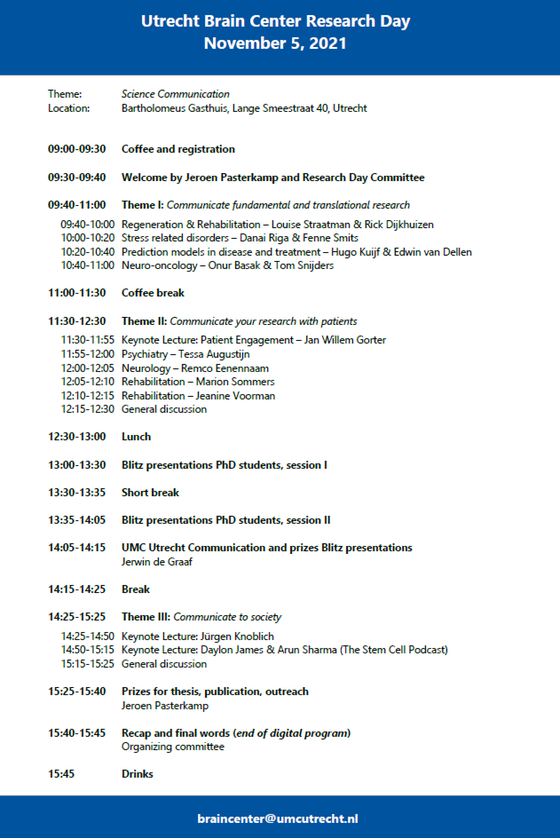
----------------
Names
Keynote Lecture : Daylon James and Arun Sharma
The Stem Cell Podcast
The Stem Cell Podcast was launched in 2013 by two research scientists, Drs Yosif Ganat and Chris Fasano. Their goal was to create an accessible, entertaining resource for scientists to keep current on the latest developments in stem cell research, as well as to interview key influencers in the stem cell field about their work and perspectives on the field. Today, Daylon James and Arun Sharma host the show in a dynamic way with extensive scientific expertise which have added depth, insight and flavor to the podcast.
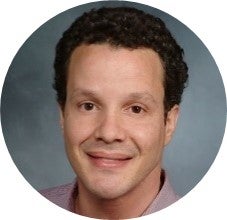
Dr. James Taylor is a former guest of the Stem Cell Podcast and fan favorite. He received his PhD from the Rockefeller University, specializing in Molecular Embryology, then did a post-doc at Weill Cornell Medical College. Currently, Dr. James is an Assistant Professor of Stem Cell Biology and Obstetrics and Reproductive Medicine at Weill Cornell, where his work uses human embryonic and induced pluripotent stem cells to generate endothelial and hematopoietic cells for regenerative therapy of cardiovascular and blood disease. In addition to being a super smart, knowledgeable and successful stem cell researcher, Dr. James is charming and funny with a unique ability to talk deep science in an approachable, accessible way.
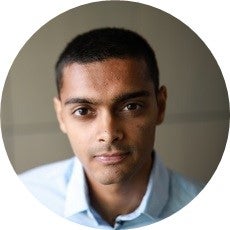
Dr. Arun Sharma is a former guest of the Stem Cell Podcast, and a long-time fan. He received his PhD from the Stanford University, specializing in Stem Cell Biology and Regenerative Medicine, and then did a postdoctoral fellowship at the Harvard Medical School. Currently, Dr. Sharma is a Senior Research Fellow at the Cedars-Sinai Medical Center Regenerative Medicine Institute, where he uses human induced pluripotent stem cell-derived cardiomyocytes and CRISPR/Cas9 gene editing to model cardiovascular diseases “in-a-dish” and to develop cell-based screening platforms for drug toxicity. Dr. Sharma is a long-time proponent of science communication and enjoys public speaking about topics in stem cell biology. He also actively engages both scientific and non-scientific audiences on Twitter (@arunsharmaphd) to discuss new scientific advances.
Keynote Lecture: Jürgen Knoblich
Modelling human brain development and disease in cerebral organoids
In the Knoblich Lab the aim is to understand the unique form and function of the human brain, and to decipher how genotypic changes associated with brain-related disease cause phenotypic malformations and misfunctions. Toward this, they investigate the mechanistic principles of human brain development across a broad scale: from molecules to cells to complex tissues.
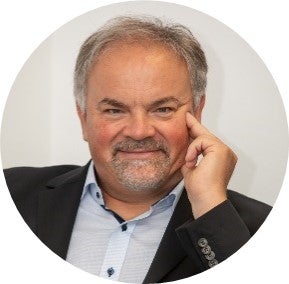
Jürgen Knoblich is a developmental neuroscientist studying human brain development and psychiatric disorders. He is the Scientific Director of the Institute of Molecular Biotechnology of the Austrian Academy of Sciences (IMBA) in Vienna. His laboratory is interested in the development of the human brain and the mechanisms of neuro-developmental disorders. To analyze this process, they have developed cerebral organoids, a 3D culture method that recapitulates the early steps of human brain development starting from pluripotent stem cells. By growing organoids from disease patients, they were able to model microcephaly and demonstrate for the first time that human neurodevelopmental disorders can be studied in 3D culture.
Keynote Lecture: Jan-Willem Gorter
Patient Engagement in Brain Research
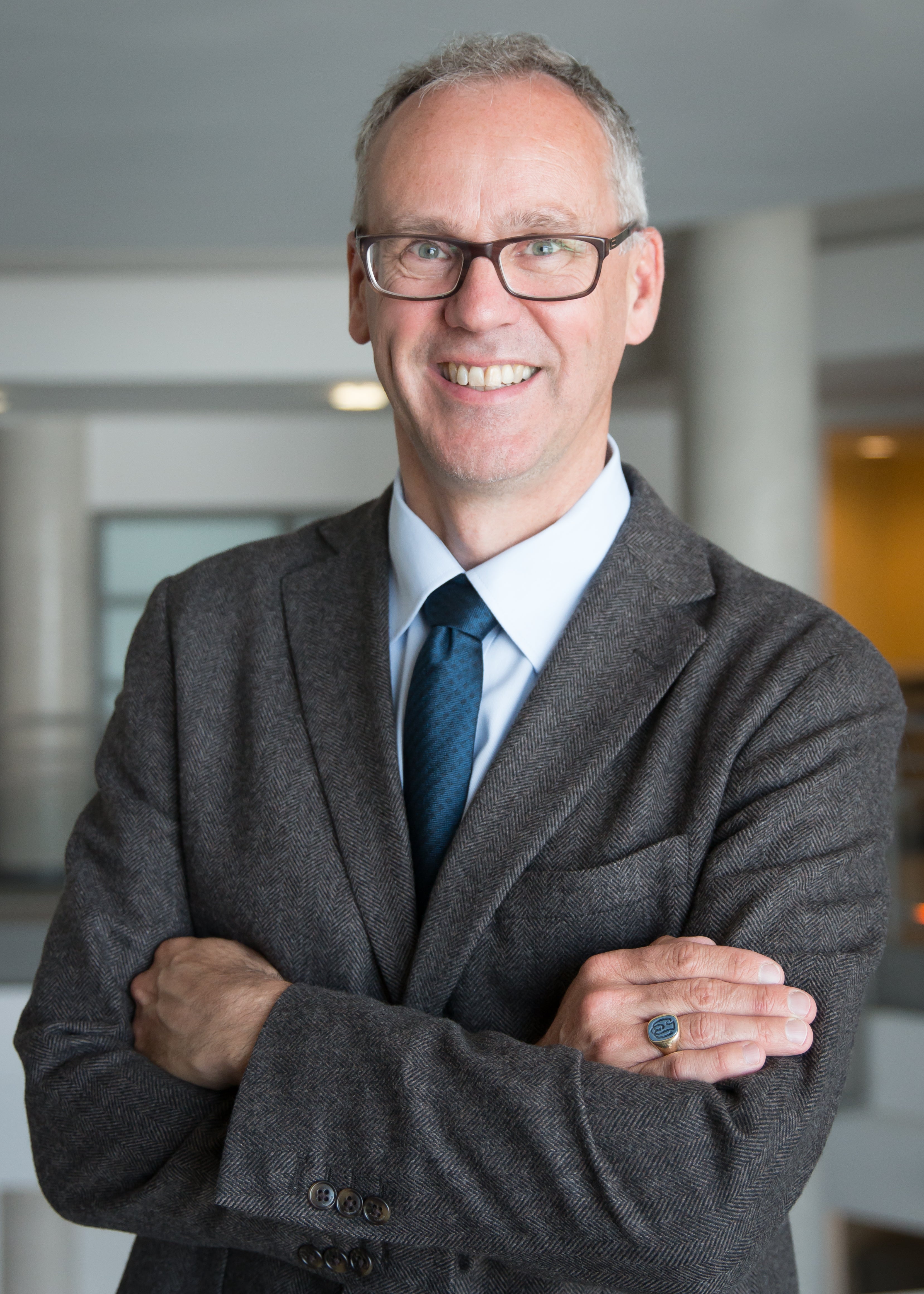
Keynote Lecuture: "Patient Engagement in Brain Research"
Professor Jan Willem Gorter, MD, PhD, is a Pediatric Physiatrist and Head of Pediatric Rehabilitation at UMC Utrecht as of August 1, 2021. He returned to Utrecht after a period of over 13 years at McMaster University, where he was the Director of the world-renowned CanChild Centre for Childhood Disability Research in Hamilton, Canada. He remains affiliated with McMaster University as a visiting professor. He also is the Chief-Editor of the journal CHILD: Care, Health and Development.
Jan Willem has a special clinical and research interest in the health, development and wellbeing of children and youth with developmental disabilities due to a brain disorder, muscle disorder, oncological disorder or congenital orthopedic disorder. His research focuses on the themes of the six ‘F-Words” for child development: family, function, fitness, fun, friends and future, and includes clinical studies and health services research. He has published extensively including 224 refereed articles and 16 book chapters (6 first authored; combined English and Dutch).
Jan Willem leads an internationally recognized research program that advances the knowledge of health development of people with disabilities, and that enhances research capacity in 'Lifecourse Health Development' in which the input of young people themselves and their parents is crucial.
With his team of clinicians and researchers, Jan Willem aims to bring the complex care of children with developmental disabilities and the family to a higher level and thus improve their health, optimize their participation in our society, increase their autonomy and facilitate their transition into adulthood.
Marion Sommers-Spijkerman
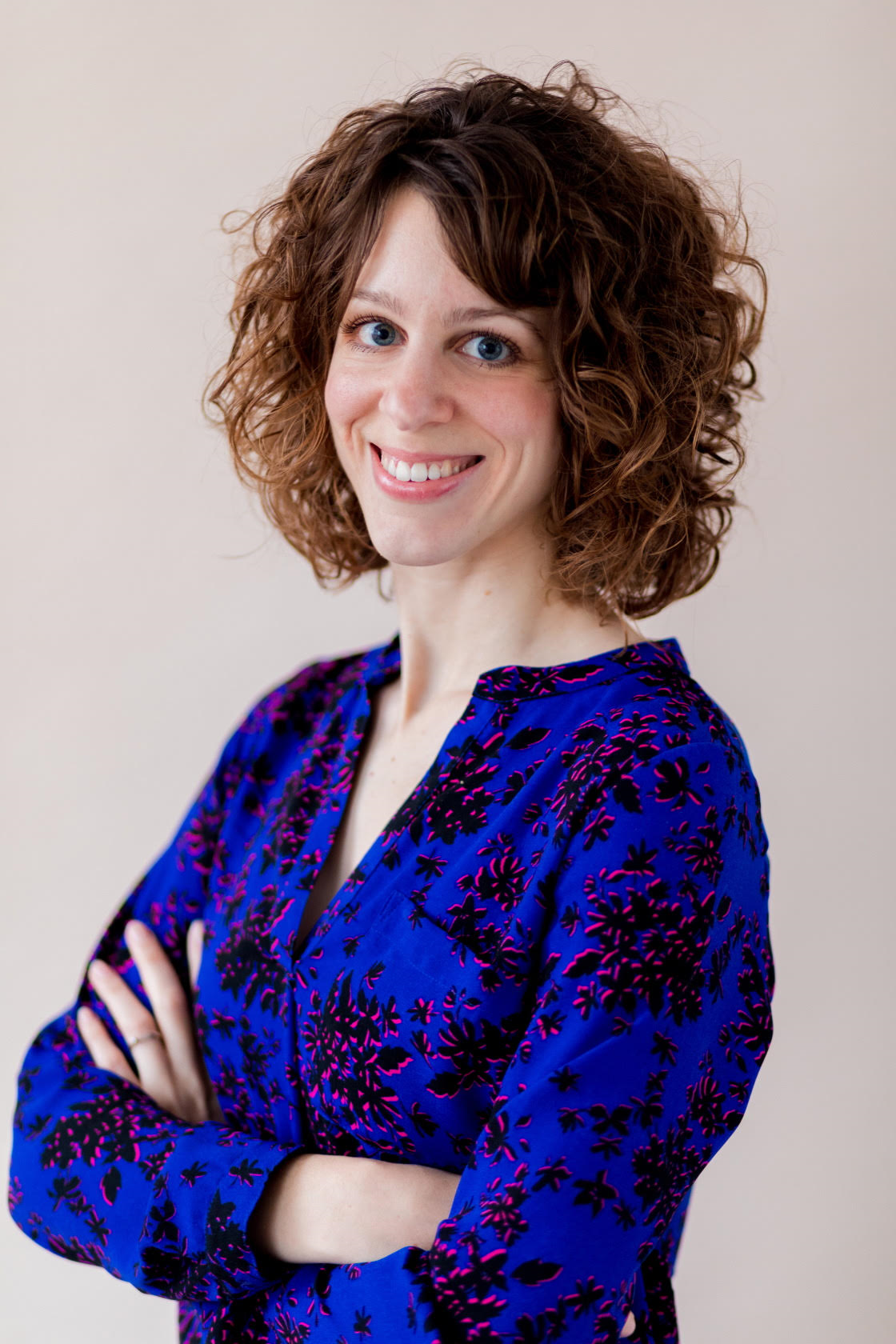
Prestation: "ALS Parents & Kids Support: Giving parents and children a voice in research and education about ALS."
Marion Sommers-Spijkerman works as a postdoctoral researcher at the University Medical Center Utrecht, department of Rehabilitation, Physical Therapy Science and Sports. Her work focuses on improving the quality of life of patients and family caregivers through the use of education and psychological support.
Remko Eenennaam
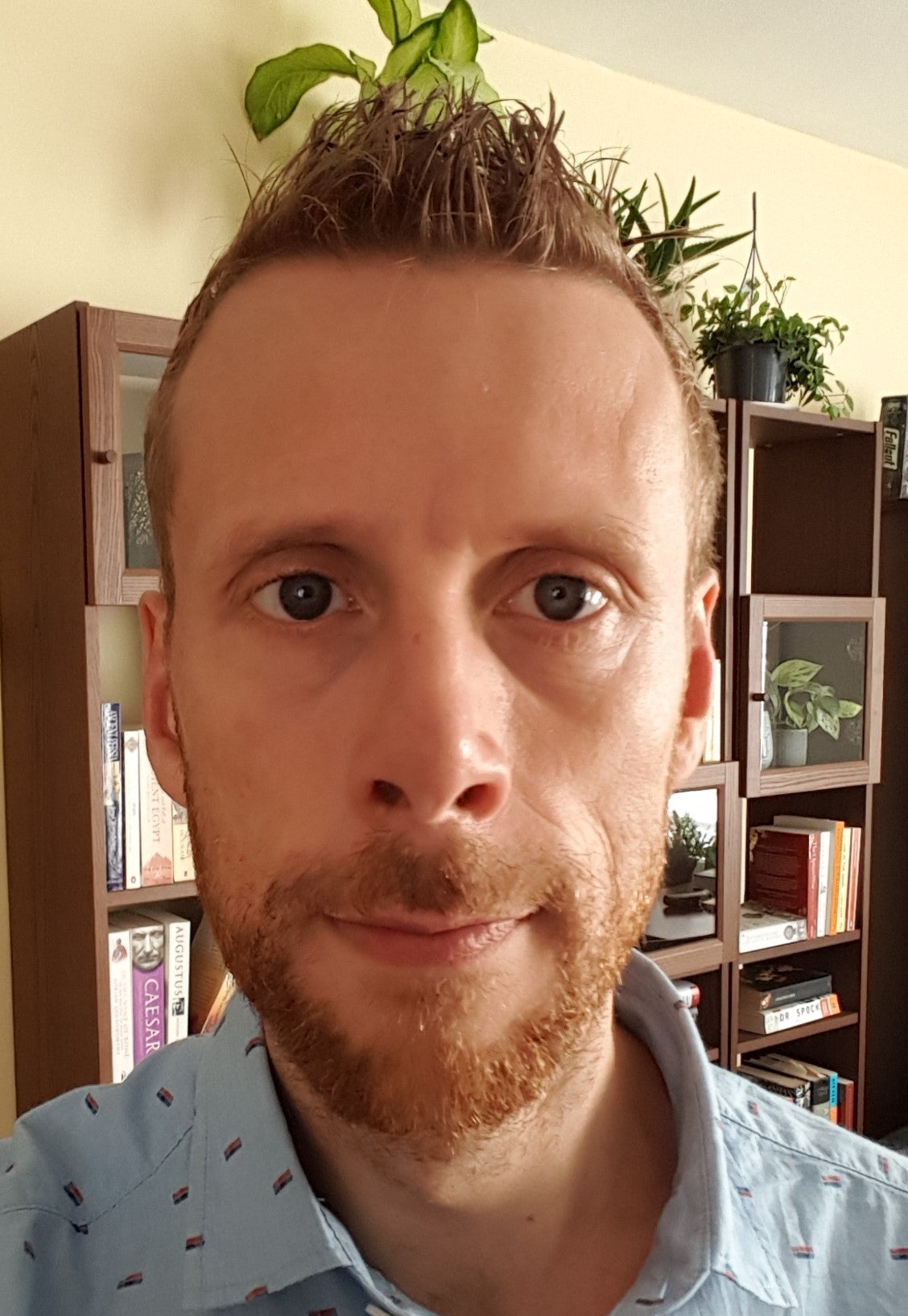
Presentation: "Communicating personalized prognosis empowers patients to regain control over their future"
Remko van Eenennaam has been a PhD-student at the department of Rehabilitation since September 2017. His dissertation focuses on informed decision-making in patients with amyotrophic lateral sclerosis by personalizing and tailoring information and supporting their autonomy. Topics of research include patient experiences with discussing personalized prognosis, patient experiences with decision-making on gastrostomy, and trends in end-of-life decision-making.
Tessa Augustijn
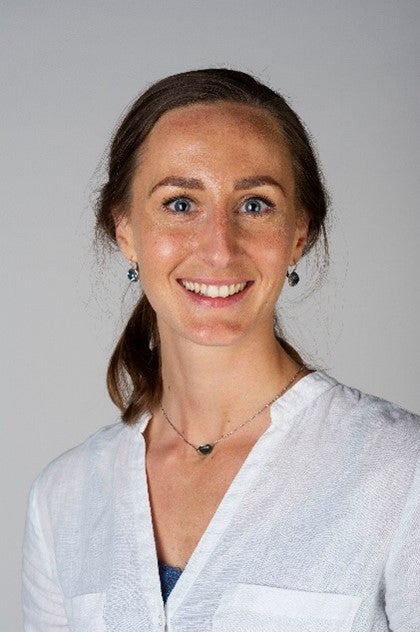
Presentation: "Gamification in mental healthcare"
Tessa Augustijn, a healthcare policy officer at the Psychiatry department, has a background in nursing and Innovation in Care and Welfare. She is involved in several innovation projects aimed at improving experiences and health outcomes of children at the Psychiatry department.
Danai Riga
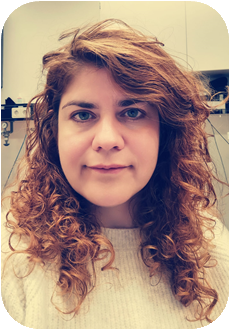
Presentation: "Neuropeptide Y in stress and anxiety: a novel role for an old ally"
Danai Riga is a neuroscientist interested in how stress alters our brain. She was born in Pyrgos, Greece on 1984, and in 2001, moved to the island of Crete for her Bachelor’s degree in Psychology. During her studies, she realized her love for the brain and everything neuro. To pursue this, in 2007 she moved to the Netherlands and obtained her Master’s degree in Neuroscience at the VU University, Amsterdam. After her graduation, she remained at the VU and the Center for Neurogenomics and Cognitive Research, as a PhD candidate under the supervision of Prof. Dr. Sabine Spijker. There, Danai studied the affective and cognitive effects of social stress, as well as stress-related changes in hippocampal synapses. After obtaining her PhD degree in 2017, Danai moved to Magdeburg, Germany with a Marie Curie Individual Fellowship, to study the role of extracellular matrix in stress. In 2019, after being awarded a Veni NWO grant, Danai returned to the Netherlands, and the Dept. of Translational Neuroscience at UMC Utrecht, where she currently works as a senior post-doc researcher, investigating endogenous anti-stress systems.
Louise Straatman
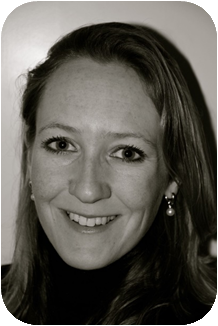
Presentation: "Stem cell-based approaches: A future therapy for hearing loss?"
Louise Valerie Straatman is an otorhinolaryngologist specialized in otology and neurotology at the University Medical Centre in Utrecht. She graduated from University of Groningen Faculty of Medicine in 2007. She then started with her PhD thesis about “ Cochlear implantation in the prelingually deaf” at the department of otorhinolaryngology at the Radboud University Medical Centre in Nijmegen, which she completed in 2015. In the mean time she completed training in otorhinolaryngology at the Radboud University Medical Centre in Nijmegen. She subsequently completed a 2 year fellowship in Otology & Neurotology at the University of British Columbia, Vancouver, Canada. During this fellowship she worked on research project for stem cell therapy for the cochlea. Since 2016 she is working as an otologist at the University Medical Centre Utrecht, were she continued her research line on stem cell therapies for deafness.
Tom Snijders
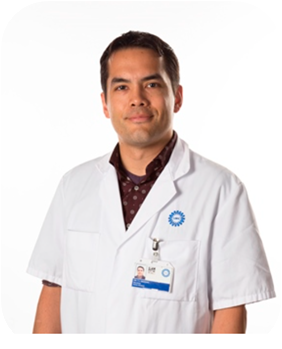
Presentation: "Brain tumors: where brain and cancer meet"
.J. (Tom) Snijders, PhD, completed his medical studies and his Neurology residency in the UMC Utrecht. During his training, he obtained a PhD-degree in the field of chronic pain medicine. He sub-specialized in Neuro-oncology during his residency.
Since 2011, he works as a neurologist in the UMC Utrecht. His practice encompasses all aspects of neuro-oncological patient care. His scientific work focuses on primary brain tumors, specifically gliomas. He is the co-coordinator, with prof. Elly Hol, of the Disease Area Neuro-oncology of the UMC Utrecht Brain Center. He is co-supervisor of 4 completed or ongoing PhD-trajectories. He is also involved in providing and evaluating experimental treatments (international clinical trials) in the UMC Utrecht.
Rick Dijkhuizen
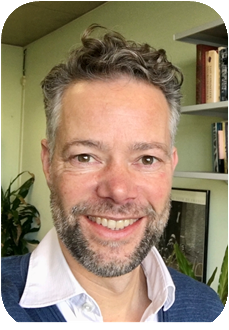
Presentation: "Translational Research in Stroke Recovery and Rehabilitation"
Rick Dijkhuizen is professor of Experimental and Translational Neuroimaging, and head of the Biomedical MR Imaging and Spectroscopy group, part of the Center for Image Sciences, at the University Medical Center Utrecht (UMCU) (The Netherlands). His research focuses on multiparametric imaging of brain structure and function in health and disease, with particular emphasis on i) development of tools for improved diagnosis of brain pathophysiology, ii) characterization of neural network (re)organization, and iii) monitoring of neuroprotective and -restorative therapies. He has been particularly involved in preclinical MRI studies to get improved insights in stroke pathophysiology and recovery. At the UMCU, he has recently initiated a translational (bench-to-bedside-and-back) research program on non-invasive brain stimulation as a treatment to promote functional recovery in stroke survivors, which involves collaboration with the Departments of Neurology and Rehabilitation, Physiotherapy Science & Sport, Rehabilitation Center De Hoogstraat, and Brain Science Tools B.V.
Rick Dijkhuizen collaborates with various national and international institutions on topics such as acute stroke treatment, stroke recovery, brain repair and functional imaging. He is Founder and Chair of the Netherlands Experimental Stroke Alliance, and Associate Editor of Frontiers in Neurology/Stroke and the Journal of Cerebral Blood Flow and Metabolism.
Onur Basak
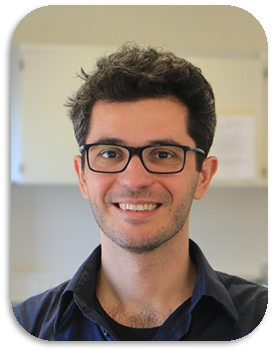
Presentation: "Brain tumors: where brain and cancer meet"
Trained as a molecular biologist and a geneticist in Ankara, Turkey, I spent most of my research in Europe working in the fields of developmental neuroscience and adult stem cell research. During my PhD in Freiburg, Germany and postdoctoral training at the Hubrecht Institute, Utrecht, I realized that everyone has a unique path that allows them to answer scientific questions that no one else can. My ambition is to understand how the complex structure of the brain is formed and maintained, and how alterations in underlying molecular mechanisms can lead to disease. More specifically, my research team at the Translational Neuroscience department search for epigenetic basis of establishment and maintenance of neural cell identity, neural stem cell fate choices and how these are altered in autism spectrum disorder. We employ advanced single cell/nucleus RNA and epigenome sequencing techniques, mouse genetics, CRISPR-mediated genome editing and computational methods to achieve this goal. This gives me the opportunity to pass on the knowledge and skills I accumulated throughout my career through several teaching and postgraduate training activities.
Edwin van Dellen
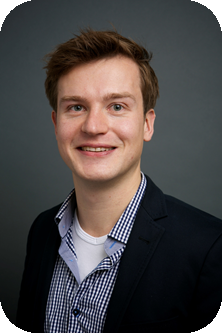
Presentation: ‘Prediction models in disease & treatment’
Edwin van Dellen is a psychiatrist working at the Affective and Psychotic Disorders care line, and a researcher at the Departments of Psychiatry and Intensive Care Medicine. He is working on a care program for personalized treatment for people who hear voices or suffer from therapy-resistant depression. His research is focused on neurophysiological disturbances in neuropsychiatric conditions and he aims to develop predictors for treatment response.
Hugo Kuijf
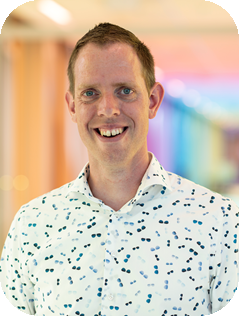
Presentation: ‘Prediction models in disease & treatment’
Hugo Kuijf graduated in Computer Science at Utrecht University in 2009, with academic minors in Software Engineering and Game- and Media Technology. In 2013, he received his PhD in Medical Imaging after defending his thesis entitled "Image processing techniques for quantification and assessment of brain MRI".
His research focuses on innovative image processing and (deep) machine learning and artificial intelligence techniques for the quantification and assessment of brain MR images. These techniques are applied in the context of brain anatomy and pathology, in particular small vessel disease.
He is an assistant professor at the Image Sciences Institute, UMC Utrecht; programme coordinator of the MSc programme Medical Imaging; member of the Board of Examiners of the Graduate School of Life Sciences; chair of the Education Committee of the PhD programme Medical Imaging; and university lecturer at Eindhoven University of Technology.
Fenne Smits
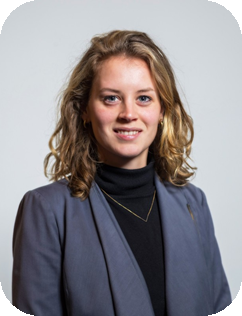
Presentation: ‘Cognitive control and stress: does non-invasive brain stimulation help?’
Fenne Smits is currently finishing her PhD at the research center of the military mental healthcare. Her research focuses on adverse stress effects on cognition and mental health. She investigates effects on non-invasive brain stimulation, together with Dr. Elbert Geuze and Professor Dennis Schutter from Utrecht University. Fenne plans to explore new research avenues in this field in the coming years.
Jerwin de Graaf
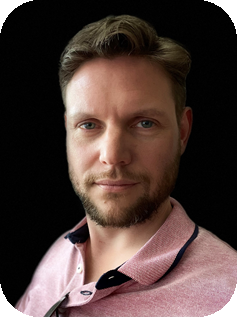
Presentation: ‘Communicating about science to the public’
Jerwin de Graaf is a communications advisor with a background in journalism. He specializes in science communication. Jerwin worked for Quest, the largest Dutch popular science magazine and one of the best-read magazines in the Netherlands, for eight years; first as a science writer, and later as online editor and content manager. For the last five years, Jerwin helped researchers at TU Delft’s Faculty of Applied Sciences communicate about their work to the public. He moved to UMC Utrecht this past September to join a new team, called ‘Society & Science’, as science information officer for the strategic program Brain.
----------------
Wanneer
Van vrijdag 5 november 2021
09:30 uur
Tot vrijdag 5 november 2021
16:00 uur
Locatie
The Research Day of 2021 will be hosted at the Bartholomeus Gasthuis in Utrecht and all the sessions will also be broadcasted through MS Teams.
